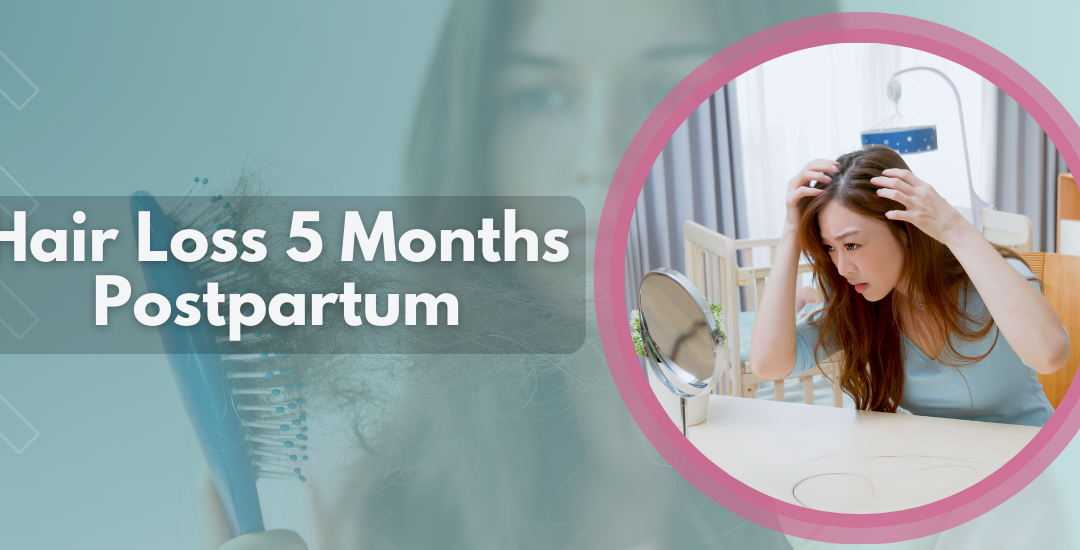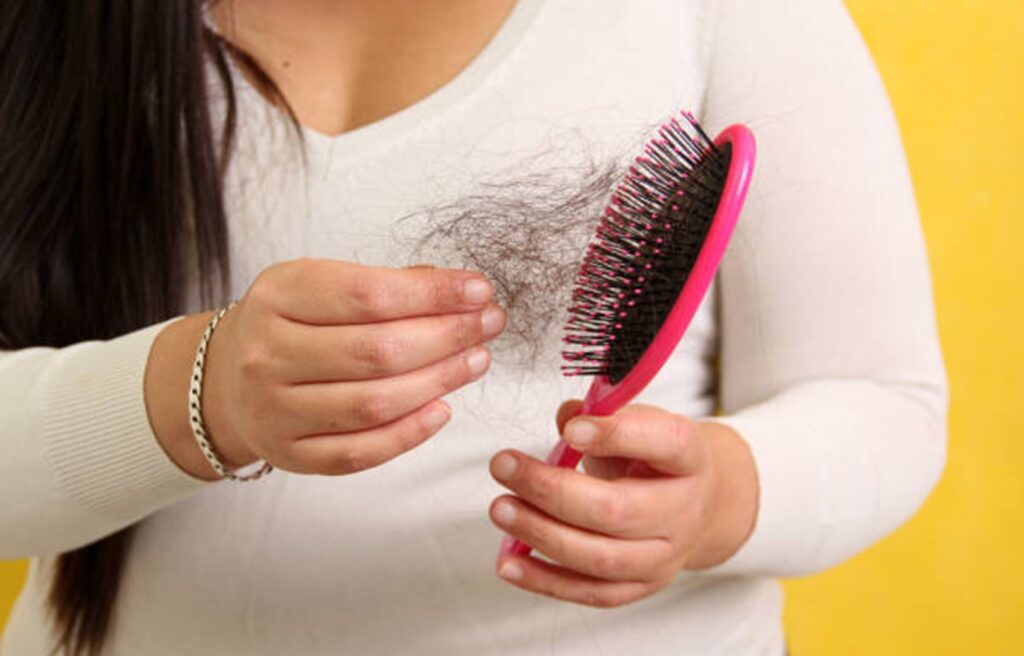Experiencing hair loss 5 months postpartum? You’re not alone. According to the American Pregnancy Association, it is a common concern among new mothers. It affects up to 60% of women during this period. This phenomenon, known as postpartum alopecia, can be distressing. But fear not; solutions are available to help you navigate this phase.
Dr. Himali Maniar, a compassionate gynecologist in South Bopal, Ahmedabad, understands the concerns surrounding postpartum hair loss. At Nisha Women’s Hospital, Dr Maniar offers customized solutions and support to help women manage hair loss post pregnancy.
First, Let’s Know
The Reasons for Hair Loss 5 Months Postpartum
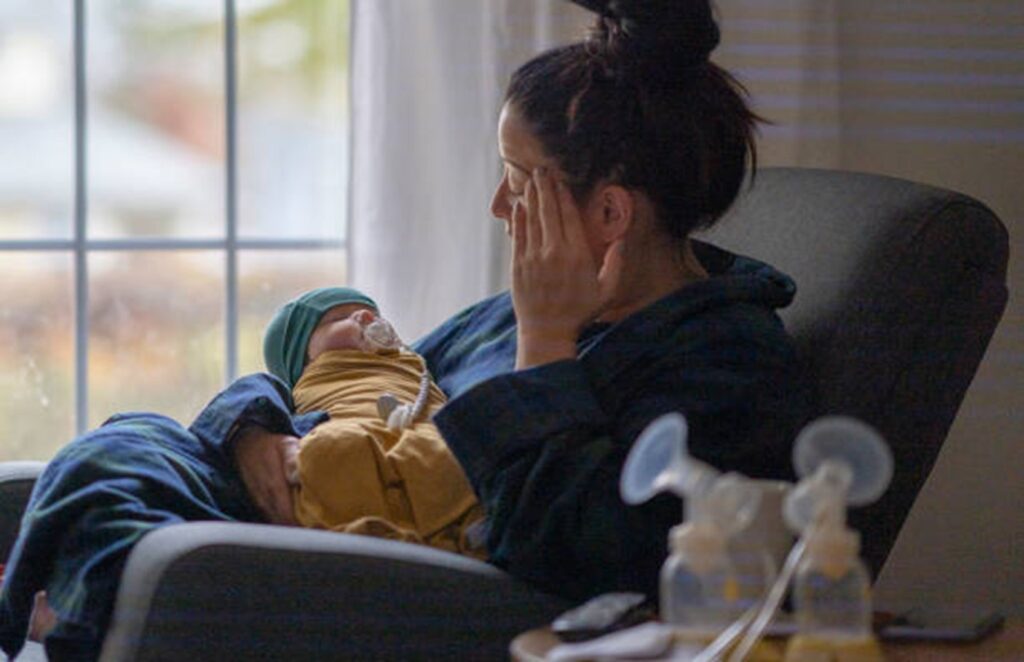
Hormonal fluctuations:
Significant hormonal changes occur in the body during pregnancy and after childbirth. This can disrupt the hair growth cycle.
Telogen effluvium:
Postpartum hair loss often occurs due to telogen effluvium. It is a condition that occurs when many hair follicles enter the resting phase and then fall out. It typically lasts 3-6 months after childbirth.
Stress:
The stress of childbirth and adjusting to motherhood’s demands can contribute to hair loss.
Nutritional deficiencies:
Pregnancy and breastfeeding can deplete the body of essential nutrients. It can lead to hair loss if not adequately replenished.
Lack of self-care:
New moms often prioritize their baby’s needs over their own, neglecting self-care practices that promote healthy hair growth.
Genetics:
Your genetic predisposition to hair loss can affect postpartum hair shedding.
Lack of sleep:
Sleep deprivation is common for new mothers. It can exacerbate hair loss by disrupting hormone levels and increasing stress.
Please don’t wait for postpartum hair loss to resolve on its own. Take action now.
How Long Does Postpartum Hair Loss Last?
Postpartum hair loss usually peaks around three to four months after delivery. However, it can persist for up to six months or even longer. During this time, you may notice an increase in hair loss while showering or brushing, which can be concerning. However, rest assured that this shedding phase is temporary and usually resolves within six to twelve months after it begins.
Your body is simply adjusting to the hormonal changes during and after pregnancy. While it may feel frustrating, remember it is a natural process. Your hair will eventually return to its pre-pregnancy state.
When to Consult a Doctor?
If you are experiencing hair loss post pregnancy, seeking help from a qualified medical professional is crucial. You should consult a doctor if you:
- Are experiencing excessive hair loss that doesn’t seem to improve.
- Notice bald patches or significant thinning of your hair.
- Experience other concerning symptoms like fatigue or mood changes accompanied by severe hair loss.
- Have a history of thyroid issues or other hormonal imbalances.
- Are unsure whether your hair loss is normal or a sign of an underlying health issue.
- Feel anxious or distressed about your hair loss and need reassurance or guidance.
“Remember, seeking medical help can assist in identifying the underlying cause and getting appropriate treatment,” mentions Dr. Himali Maniar, a distinguished obstetrician and gynecologist in South Bopal, Ahmedabad.
Let’s explore the various treatments available to address hair loss postpartum.
What are the Treatment Options for Postpartum Hair Loss?
Prescription Medications:
Your doctor may prescribe certain medications, such as finasteride, to help prevent hair loss.
Topical Treatments:
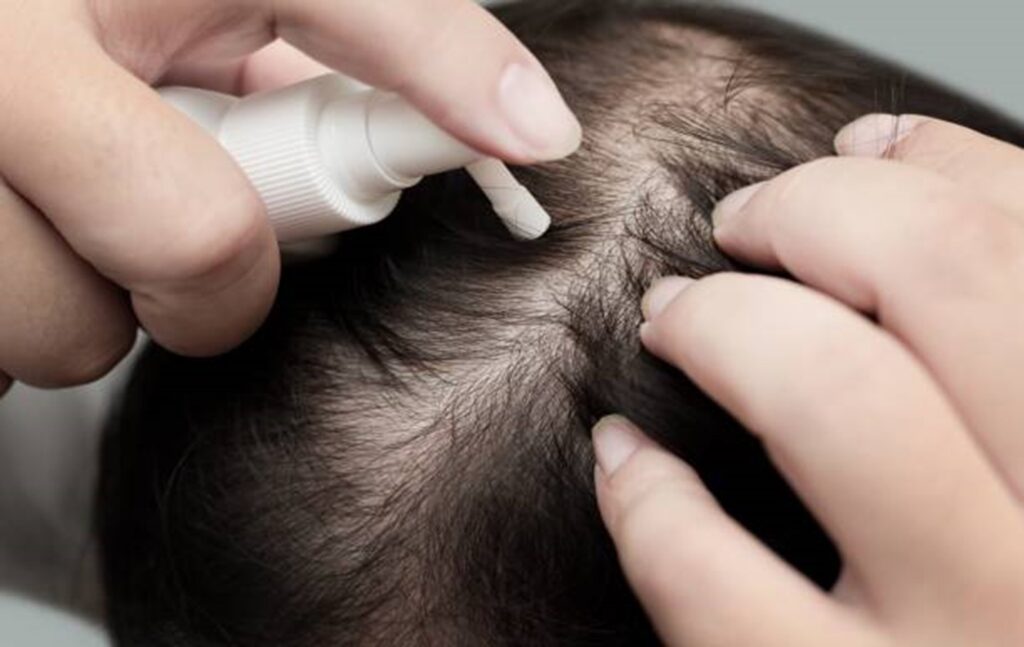
Nutritional Supplements:
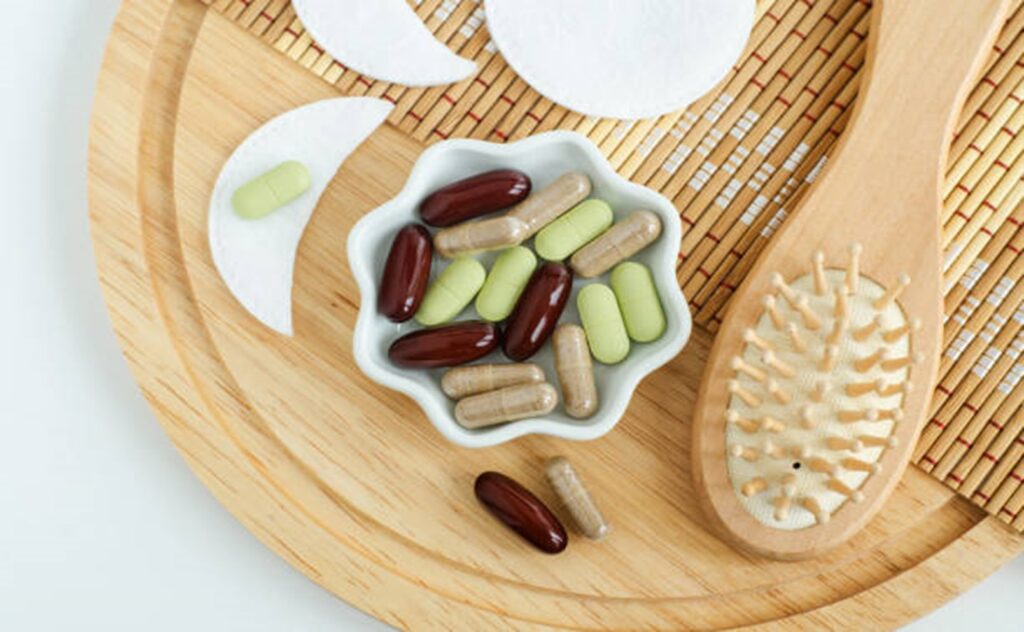
Hormone Therapy:
In some cases, hormone therapy may be prescribed to regulate hormonal imbalances contributing to hair loss.
Lifestyle Modifications:
Your doctor may suggest simple lifestyle changes, such as stress management techniques and a balanced diet, to help reduce hair loss postpartum.
Need personalized advice for managing hair loss post pregnancy? Consult experienced professionals now!
Want to support your hair health naturally? Let’s learn about lifestyle changes you can make to promote hair growth.
Let’s explore the various treatments available to address hair loss postpartum.
Lifestyle Changes for Hair Loss 5 Months Postpartum
1. Nutritious Diet:

Opt for foods high in iron, zinc, and vitamin D to promote hair health.
2. Stay Hydrated:

3. Manage Stress:

4. Gentle Hair Care:

Avoid excessive heat styling and tight hairstyles that can strain the hair follicles.
5. Scalp Massage:
Massage your scalp regularly to improve blood circulation and stimulate hair growth.
6. Supplements:
Consult your doctor about supplements like biotin, which can support hair growth.
7. Avoid Harsh Chemicals:
Minimize exposure to harsh chemicals found in hair dyes and styling products.
8. Get Adequate Sleep:
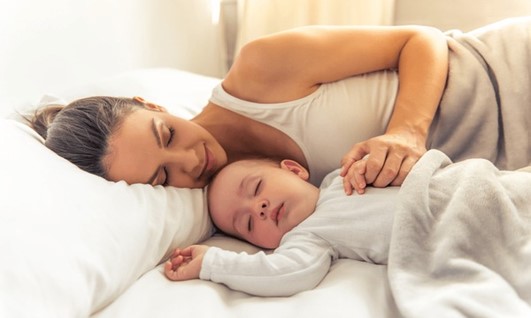
Conclusion
Dealing with hair loss 5 months postpartum can be a stressful experience for many women. However, it is important to understand that it is a temporary phase, and you can regain your hair growth with proper guidance. With patience and expert advice from specialists like Dr. Himali Maniar, you can confidently embrace your beautiful postpartum hair growth journey.
Say goodbye to postpartum hair worries—discover solutions today!
Got more questions? Check out our FAQ section for answers.
Frequently Asked Questions:
1. Can breastfeeding cause hair loss?
Hormonal changes during breastfeeding can contribute to temporary hair loss. However, it typically resolves on its own after weaning.
2. Can I use castor oil on my hair while breastfeeding?
Yes, castor oil is generally safe to use on your hair while breastfeeding. However, it’s always a good idea to consult your doctor before trying new products.
3. Is post-partum hair loss permanent?
No, postpartum hair loss is usually temporary and resolves within a few months as your hormone levels stabilize. However, consult a healthcare expert for personalized advice if you’re concerned.
4. How long does postpartum hair loss last?
Typically, it peaks around 3-4 months postpartum and resolves within 6-12 months.
5. Will my hair grow back after postpartum hair loss?
Yes, your hair should gradually grow back as your body adjusts postpartum.
6. Can stress make postpartum hair loss worse?
Yes, stress can exacerbate hair loss. So, managing stress through relaxation techniques or seeking support is essential.
7. Is it normal to have bald spots postpartum?
Temporary thinning or bald spots can occur. But usually, it resolves as your hair growth cycle normalizes.

